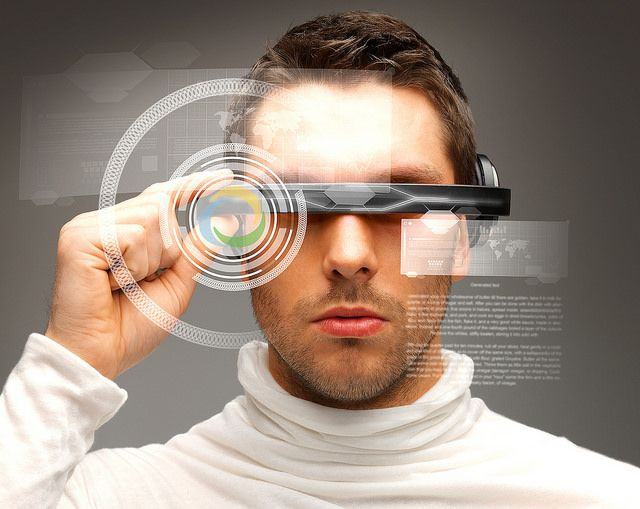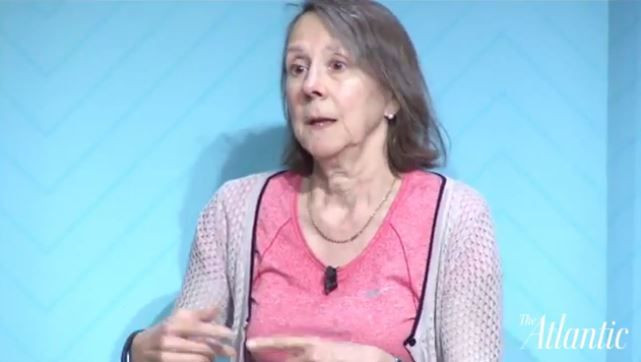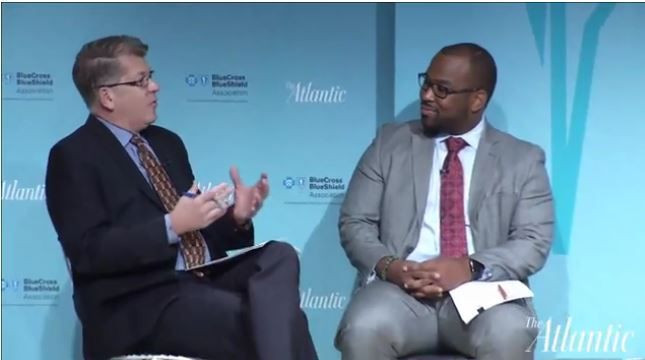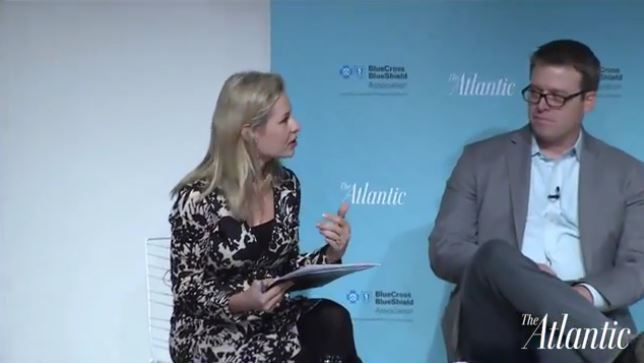Will Data Make You Happy? How The Quantified Self Is Changing The Future Of Health Care

“Is data gonna make us happy?”
This simple question resonated throughout the morning conference as entrepreneurs, doctors, researchers, business leaders, and patient advocates discussed the explosive growth of medical data and how it might lead to a healthier population. The question had been posed by Steve Clemons, Washington editor-at-large for The Atlantic, event host. As each speaker presented a vision of how and why data was transforming the future of health care, the simple fact of happiness lingered like an odor in the room, in this case a very pleasant room in the basement of the New Museum, where earlier attendees had dutifully filed past the colorful "Poor Traits" of Barbara Rossi hanging in the lobby.
Clearly, providers needed data, and companies hoped to make money from data, and some people wanted to become more fit with data, but would any of us become happy by having access to the details of our physiology?
The constant tracking of footsteps, sleep patterns, heart beats, and other data — “the quantified self”— appeared to be simply more evidence of our ability to collect data outpacing our ability to generate intelligence from it. Do these bits and bytes, stats and patterns, really help anyone to become happy? What, really, is the point?
“The world is becoming more short-term. We’re using data for next quarter, next election. We should be using data for thinking long-term,” said Esther Dyson, chairman, Edventures. She explained how, for example, she could go into a grade school and accurately predict that two-thirds of the kids would end up unhealthy simply by looking at what they were eating.
“I don’t need a lot of personalization, I don’t need genetics, I just need a trust in the data that says the kids who have been eating this stuff for the past 20 years have turned out badly in terms of health,” she said.

Trust, Utility, Context
Trust and utility, intertwined, are central to Dyson’s vision of how medical data might be transformative in people’s lives. Even more significant, according to Dyson, is context. A young mother who has received a terminal cancer diagnosis might choose an extraordinary, painful medical procedure given data suggesting it could prolong her life for one year to 16 months, yet how would that story change if the lead character were a grandmother? Would she want to undergo the same procedure knowing an inevitable death was near?
“All the data operate within the context of who’s making the decision, for whom, about what,” Dyson said.
Others, including Ashish Atreja, director of Sinai AppLab and chief technology innovation and engagement officer at Mount Sinai Medical Center, championed actionable data.
“The data has to be the right kind of data, in the right form, available to the right person (whether the patient, a physician, or a caregiver) at the right time,” Atreja said, adding that no one ever wants to talk about the unsexy topic of delivery science, even if it was equally important as the data collection itself. According to Atreja, we need to put more effort into learning how to place data into the hands of those who not only want and need it, but those who will act on it.
A similar desire for sculpted, usable data was echoed by Allan Pollard, CEO of The Vitality Group. He believes the self-quantification movement is driven by consumers, who not only are aware of the benefits of data but wanting to change their lives based on it. (Someone like you?)
Motivation
“The amount and quality of the data that we are sitting on now is extraordinary,” he said, adding that we’ve now arrived at the stage where we need to get “individuals on the ground” to change their behavior. From his perspective, this is the key, since not everyone is equally motivated to change.
“Ultimately, you need intrinsic motivations,” he said, but in the meantime his company offers a points-based system that incentivizes people to change their lives.
In other words, you exercise, you get points. You go to the doctor for a screening test, you get points. These points add up and you can cash them in for rewards paid for by either an insurance company, who benefits from you being healthier, or an employer, who benefits by you being more productive. As Pollard sees it, each employer is a community, since work is where most people spend the majority of their waking hours. A certain infrastructure is there, with health “enablers” (or disablers) already in place.
“There’s no doubt the power of the community really drives so much of health care,” he said.
You and Yours
While Christopher Boone, CEO, Health Data Consortium, agrees that the self-quantification movement is not only real but also consumer-led, he said the government plays some role in that. Policy, he said, drives a lot of this change. His consortium, a public-private partnership focused on innovative uses of health information to improve health outcomes, was formed to promote the use of datasets generated by the Department of Health and Human Services and to encourage people that “data-sharing is OK.”

While he wants to reinforce the idea that a patient has to own their own health, he believes reward incentives — gamification — work only for a short period.
“I’m more in favor of the stick approach,” he said, noting penalties “create a sustained behavior change for most people.” Since environmental factors influence the health of an individual, more systemic changes must be made, including a general movement toward a value-based system as is happening in other businesses.
“Under the fee-for-service model, [doctors] were basically receiving revenue based on the number of visits from patients,” he said. If we moved toward a value-based model, where doctors received rewards when their patients enjoyed better health and didn’t have to see them as much, that would radically change medicine as well as our own expectations, as patients, of health care.
Importantly, we are currently negotiating two unique data events within the field of medicine, which adds to the challenge of shifting models.
General versus Personal
Population health, which is built on aggregate datasets culled from countless individuals, can tell us what is healthy in the most general sense. Meanwhile, precision medicine, which is based on genetic information (essentially a massive personal dataset), can tell you, and only you, how to live your healthiest life. Though these movements appear opposite, they share at least one common thread: digitizing and trafficking your most personal and private information.
The elephant in the room, or at least at the town hall event, was personal data security.
“Over time [privacy] is going to become much less an issue,” Dyson predicted. “There will be backlash, lots of commotion, and then we’ll all calm down.”
Boone agrees, noting that whenever there is discussion of health data people are concerned about privacy.
“But it’s proven the most commonly violated dataset is going to be more your banking information anyway. And I would be more concerned about that,” he said, adding that many of the privacy policies, such as the health information privacy rules known as HIPAA, need to be modernized.
Still, according to Clemons, this is “not a trivial issue.” He raised the specter of the earliest days of the AIDS crisis, recalling the enormous price paid (social exile, jobs lost) by those whose positive HIV status became public knowledge. Clemons added, “and that was just a couple of years ago.”

Democratization
This point was supported by Mary Louise Kelly, contributing editor, The Atlantic, who wondered if FitBit data might someday be subpoena-able if, say, a spiking heart rate and sweating brow could indicate the possibility of someone having committed a murder at a certain hour.
“The idea of democratization is real,” said Leonard Kish, principal at VivaPhi, who added that we need to “demand our health records as a real civil right and we need to be the ones to demand we have control over how our information is used. But it’s up to us.”
A point which neatly leads us back to our original question. Seems like the data revolution has provided us with more thorns than roses, at least so far, still, the democratization of this evolution deserves much more attention. We are in the midst of quantifying ourselves, and, according to many of the conference attendees, the wearable tech and sensors embedded in our bodies (yup, sci-fi time) will become increasingly precise, increasingly invasive. However, if this is indeed a consumer-led trend, then maybe each of us needs to think more precisely about what data we want extracted from our bodies, our lives, and made available at our fingertips, within our mind's conscious reach.
What, after all, would make us happy?



























